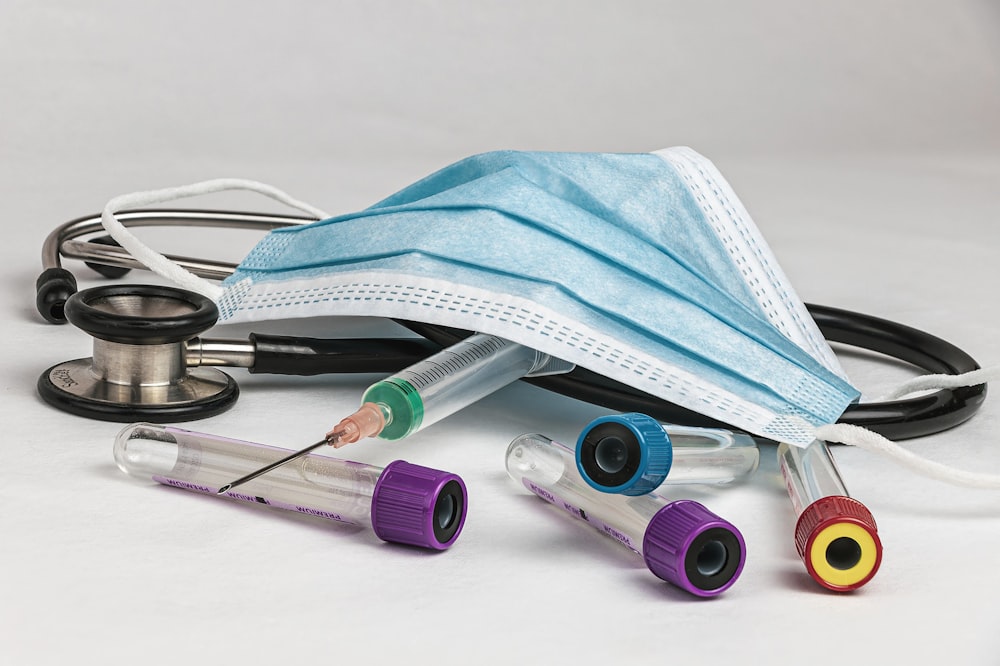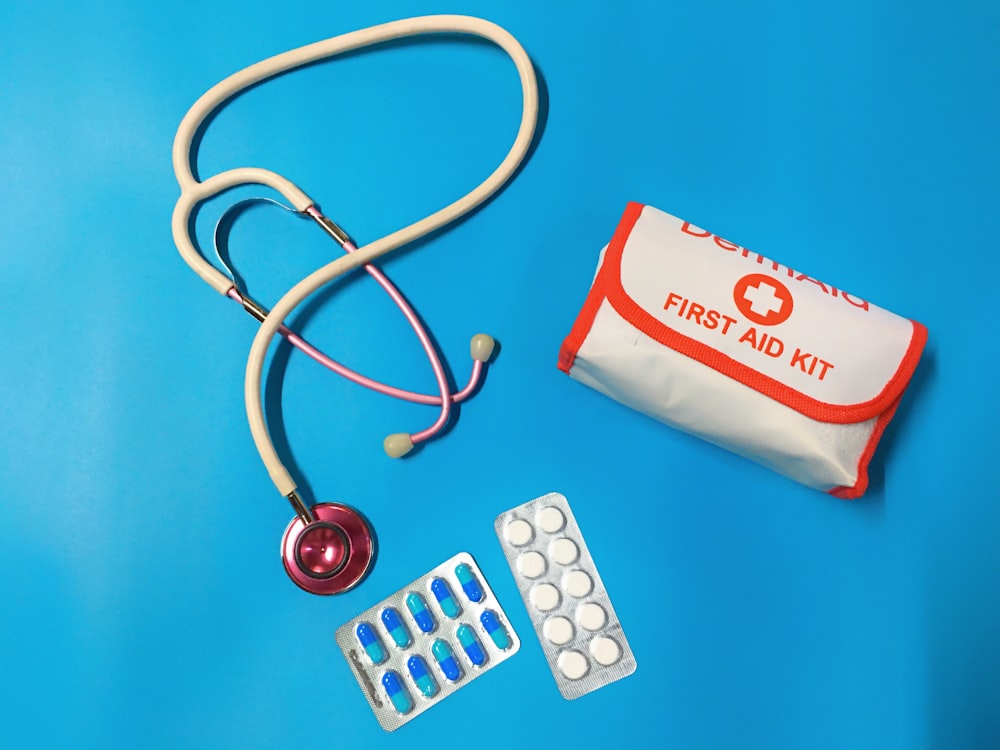Medical myths you should be aware of
In the vast landscape of health information, myths and misconceptions often thrive, creating confusion and sometimes leading individuals down paths that can be detrimental to their well-being. The realm of medicine, these myths persist despite the abundance of scientific evidence that refutes them. In this article, we embark on a journey to debunk some prevalent medical myths, shedding light on the importance of evidence-based healthcare and dispelling misconceptions that might influence health decisions.
Impact on Health Decision-Making: Medical Myths
Image via Unsplash.com
Medical myths can have a profound impact on how individuals make health-related decisions. When misinformation spreads, people may make choices based on unfounded beliefs rather than scientific evidence. This can lead to delayed or ineffective treatments, unnecessary stress, and even the exacerbation of health conditions.
Delay in Seeking Professional Help: Medical Myths
One common consequence of medical myths is the delay in seeking professional medical help. Some individuals might opt for alternative therapies or self-prescribed remedies based on misinformation, postponing the critical moment when proper medical attention is needed. Timely intervention is crucial in many health conditions, and falling victim to medical myths can have serious consequences.
Myth: Vitamin C Prevents Colds and Boosts the Immune System
One of the enduring myths in the realm of health is the belief that consuming large doses of vitamin C can prevent colds and boost the immune system. While vitamin C is essential for overall health, studies have shown that mega doses of vitamin C do not necessarily prevent colds. A balanced diet, regular exercise, and proper hygiene are more effective in supporting a robust immune system.
Myth: Cracking Knuckles Causes Arthritis: Medical Myths
Image via Unsplash.com
The sound of knuckles cracking can be cringe-inducing for some, with the prevailing myth suggesting that this habit leads to arthritis. However, scientific studies have found no association between knuckle cracking and an increased risk of arthritis. The sound is caused by the release of gas bubbles in the synovial fluid within the joints and does not contribute to joint damage.
Myth: You Can “Sweat Out” Toxins Through Exercise
The notion that sweating during exercise helps the body “sweat out” toxins is a common misconception. While sweating is a natural physiological process that helps regulate body temperature, it does not play a significant role in eliminating toxins. The liver and kidneys are the primary organs responsible for detoxification, and engaging in regular exercise supports overall health but does not serve as a mechanism for expelling toxins.
Myth: Antibiotics are Effective Against Viral Infections
A widespread myth that has contributed to antibiotic overuse is the belief that antibiotics are effective against viral infections. Antibiotics specifically target bacteria, not viruses. Misusing antibiotics for viral infections not only fails to provide any benefit but also contributes to the emergence of antibiotic-resistant strains of bacteria, posing a significant public health threat.
Myth: The “Freshman 15” is Inevitable: Medical Myths
Image via Unsplash.com
The “Freshman 15” myth suggests that college students will inevitably gain 15 pounds during their first year of university. While lifestyle changes and increased stress levels can impact weight, research indicates that the average weight gain is much lower, around 2 to 3 pounds. This myth can contribute to unhealthy eating habits and body image concerns among college students.
Myth: Going Out in Cold Weather Causes Colds
Contrary to popular belief, exposure to cold weather does not directly cause colds or flu. Colds are caused by viruses, and while cold weather can contribute to the spread of respiratory viruses, it is not the temperature itself that makes people sick. The main factors in the transmission of colds are close contact with infected individuals and poor hand hygiene.
Myth: Sugar Causes Hyperactivity in Children: medical myths
The belief that sugar consumption leads to hyperactivity in children has been debunked by numerous studies. While excessive sugar intake is associated with various health issues, including obesity and dental problems, it does not cause hyperactivity. The perception of increased activity may be influenced by factors such as excitement during special occasions rather than the sugar itself.
Myth: All Natural Products are Safe and Effective
Image via Unsplash.com
The term “all-natural” often evokes a sense of safety and efficacy, leading many to believe that natural products are inherently better than their synthetic counterparts. However, the safety and effectiveness of a substance depend on various factors, and natural does not always equate to safe. Poisonous plants, for example, are entirely natural but can be deadly. It is essential to evaluate each product based on scientific evidence rather than relying on its natural status.
Proliferation of Information on the Internet
The internet has democratized access to information, but it has also become a breeding ground for misinformation. Medical myths can spread rapidly through social media, blogs, and other online platforms, making it challenging to counteract false narratives with accurate and evidence-based information.
Cultural and Traditional Beliefs: Medical Myths
Cultural and traditional beliefs often play a significant role in shaping health-related attitudes and behaviors. Dispelling medical myths may require addressing deeply ingrained cultural beliefs. And providing culturally sensitive education to ensure accurate health information reaches diverse populations.
Emphasizing the Importance of Critical Thinking
Image via Unsplash.com
Promoting critical thinking skills is essential in navigating the vast landscape of health information. Encouraging individuals to question the sources of information, assess the credibility of claims. And seek evidence-based guidance empowers them to make informed decisions about their health.
Educating Healthcare Professionals: Medical Myths
Continuous education for healthcare professionals is crucial in ensuring they are equipped with the latest scientific knowledge. And can effectively communicate evidence-based information to patients. Additionally, fostering a culture of open communication between healthcare providers and patients encourages dialogue about health concerns and dispels myths in a collaborative manner.
Collaboration with the Media
Media outlets play a significant role in shaping public perceptions of health. Collaborating with the media to promote accurate health information, fact-checking medical claims is crucial. And providing platforms for experts to debunk myths can contribute to a more informed public.
Conclusion

Image via Pexels.com
Medical myths persist in the realm of healthcare. Dispelling these myths is crucial for promoting evidence-based healthcare and empowering individuals to make informed decisions about their well-being. Addressing common misconceptions and promoting critical thinking is crucial. And fostering collaboration between healthcare professionals, the media, and the public, we can create a healthier and more informed society. In the pursuit of well-being, knowledge is power, and separating fact from fiction is an essential step toward achieving optimal health outcomes.
USEFUL LINKS:
How to build muscle with an overall workout
Click here to know more









